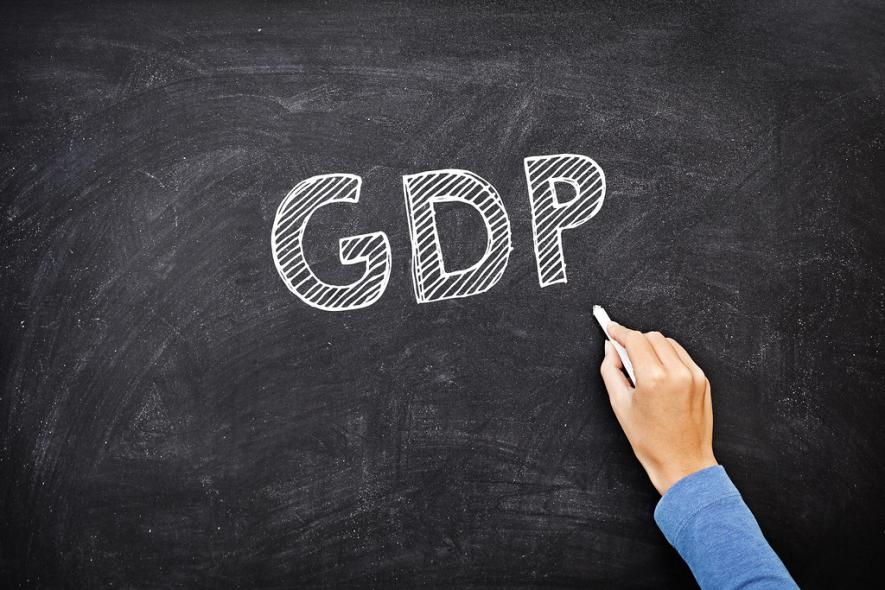‘Fastest Growing’ But Growth May Slow Down to 6.5% Next Fiscal, Says Economic Survey

Image Courtesy: Flickr
New Delhi: India's economy is projected to slow to 6.5% in the fiscal year starting April but will remain the fastest growing major economy in the world as it fared better in dealing with the extraordinary set of challenges the globe has faced, the Economic Survey 2022-23, tabled in Parliament on Tuesday said.
India's gross domestic product (GDP) growth of 6.5% in 2023-24 compares with an estimated 7% expansion in current fiscal year (April 2022 to March 2023) and 8.7% in the previous year.
Like the rest of the world, India too faced an extraordinary set of challenges in tightening financial conditions and supply chain disruptions from a prolonged war in Europe but "withstood them better than most economies", the annual document detailing the state of the economy said.
The survey tabled in Parliament by Finance Minister Nirmala Sitharaman, stated that India is the world's third largest economy in PPP (purchasing power parity) terms and fifth largest in terms of exchange rate.
"Economy has nearly recouped what was lost, renewed what had paused, and re-energised what had slowed during the pandemic and since the conflict in Europe," it said.
While it indicated that inflation may not be too worrisome, borrowing costs are likely to remain 'higher for longer' as an entrenched inflation may prolong the tightening cycle.
Current account deficit or CAD may continue to widen as global commodity prices remain elevated and because of strong economic growth momentum. If CAD widens further, the rupee may come under depreciation pressure, it said, adding the overall external situation will remain manageable.
India's CAD was 4.4% of GDP in July-September period, higher than 2.2% a quarter ago and 1.3% a year ago, as rising commodity prices and a weak rupee increased the trade gap.
On exports, it said the growth moderated in the second half of current fiscal. Slowing world growth, shrinking global trade led to loss of export stimulus in the second half of the current year.
India's exports contracted by 12.2% at $34.48 billion in December 2022 due to the global demand slowdown, and the trade deficit widened to $23.76 billion during the same period, according to government data.
Pegging nominal growth at 11% for 2023-24, the survey said the growth in the financial year beginning April 1 will remain strong relative to most global economies, led by sustained private consumption, a pick-up in lending by banks and improved capital spending by corporations.
The optimistic growth forecasts stem from a number of positives like the rebound of private consumption giving a boost to production activity, higher capital expenditure, and near universal vaccination coverage enabling people to spend on contact-based services such as restaurants, hotels, shopping malls and cinemas, the survey said.
The survey said India's economy had rebounded since the COVID-19 pandemic, but the Russia-Ukraine conflict triggered inflationary pressures and prompted central banks, including India's, to reverse the ultra-loose monetary policy they adopted during the pandemic.
Agriculture sector grew 3% in 2021-22 against 3.3% in 2020-21
According to the Survey, the agriculture sector has grown at an average annual growth rate of 4.6% during the last six years. It grew by 3% in 2021-22 compared with 3.3% in 2020-21.
Agriculture has performed well but the sector needs "re-orientation" in the backdrop of certain challenges like adverse impacts of climate change, rising input cost, etc, the Economic Survey for 2022-23 said.
The other challenges are fragmented landholdings, sub-optimal farm mechanisation, low productivity, disguised unemployment, rising input costs, etc.
"While Indian agriculture has performed well, the sector needs re-orientation in the backdrop of certain challenges...," it said.
Stating that the performance of the agriculture sector remains critical to growth and employment in the country, the Survey said investment in the sector must be encouraged through an affordable, timely and inclusive approach to credit delivery.
It may be noted that more than 75% of rural female workers are employed in the agriculture sector. This implies a need to upskill and create employment for women in agriculture-related sectors such as food processing.
"Here, the self-help groups (SHGs) can play a crucial role in shaping rural women's potential into concrete developmental outcomes of financial inclusion, livelihood diversification, and skill development," the Survey said.
Disinvestment: Rs 31,000 Cr Collected as of January 18, 2023
About Rs 4.07 lakh crore has been realised as disinvestment proceeds in the past nine years, and post-2014 the government is engaging with the private sector as a co-partner in the development, the Economic Survey said.
In the current fiscal, out of the budgeted amount of Rs 65,000 crore, 48% or over Rs 31,000 crore has been collected as of January 18, 2023.
The survey said privatisation of Air India re-ignited the privatisation drive, and evidence shows that labour productivity and the overall efficiency of the PSUs disinvested during 1990-2015 has improved.
"During FY15 to FY23 (as of January 18, 2023), an amount of about Rs 4.07 lakh crore has been realised as proceeds from disinvestment through 154 transactions using various modes/instruments," said the Survey tabled in Parliament by Finance Minister Nirmala Sitharaman.
Of this, Rs 3.02 lakh crore was realised from minority stake sale and Rs 69,412 crore was realised from strategic disinvestment transactions in 10 CPSEs - HPCL, REC, DCIL, HSCC, NPCC, NEEPCO, THDC, Kamrajar Port, Air India and NINL).
The government is currently working on privatising a host of CPSEs like Shipping Corporation of India, NMDC Steel Ltd, BEML, HLL Lifecare, Container Corporation of India and Vizag Steel, besides IDBI Bank. These strategic sale processes are in various stages and a majority of them are expected to be completed in the next fiscal, beginning April 1.
FPIs Pull Out Rs 11,421 cr from equity, Rs 12,400 cr from debt markets
Global economic factors such as inflationary pressures, monetary tightening by central banks, and recessionary fears in advanced economies exerted pressure on FPIs to sell in Indian markets, the Economic Survey 2022-23 said.
In addition, investors were sitting on gains from Indian stocks that could be realised to offset losses elsewhere, the survey noted.
These factors led to foreign portfolio investors (FPIs) pulling out a net amount of Rs 16,153 crore from the Indian capital markets during April-December FY23 as compared to an outflow of Rs 5,578 crore in the year-ago period, with both equity and debt segments witnessing net outflows.
Segment-wise, FPIs made a net withdrawal of Rs 11,421 crore from equity markets and Rs 12,400 crore from debt markets. On the other hand, they invested a net amount of Rs 8,662 crore through debt Voluntary Retention Route (VRR) during the period under review.
Get the latest reports & analysis with people's perspective on Protests, movements & deep analytical videos, discussions of the current affairs in your Telegram app. Subscribe to NewsClick's Telegram channel & get Real-Time updates on stories, as they get published on our website.
























